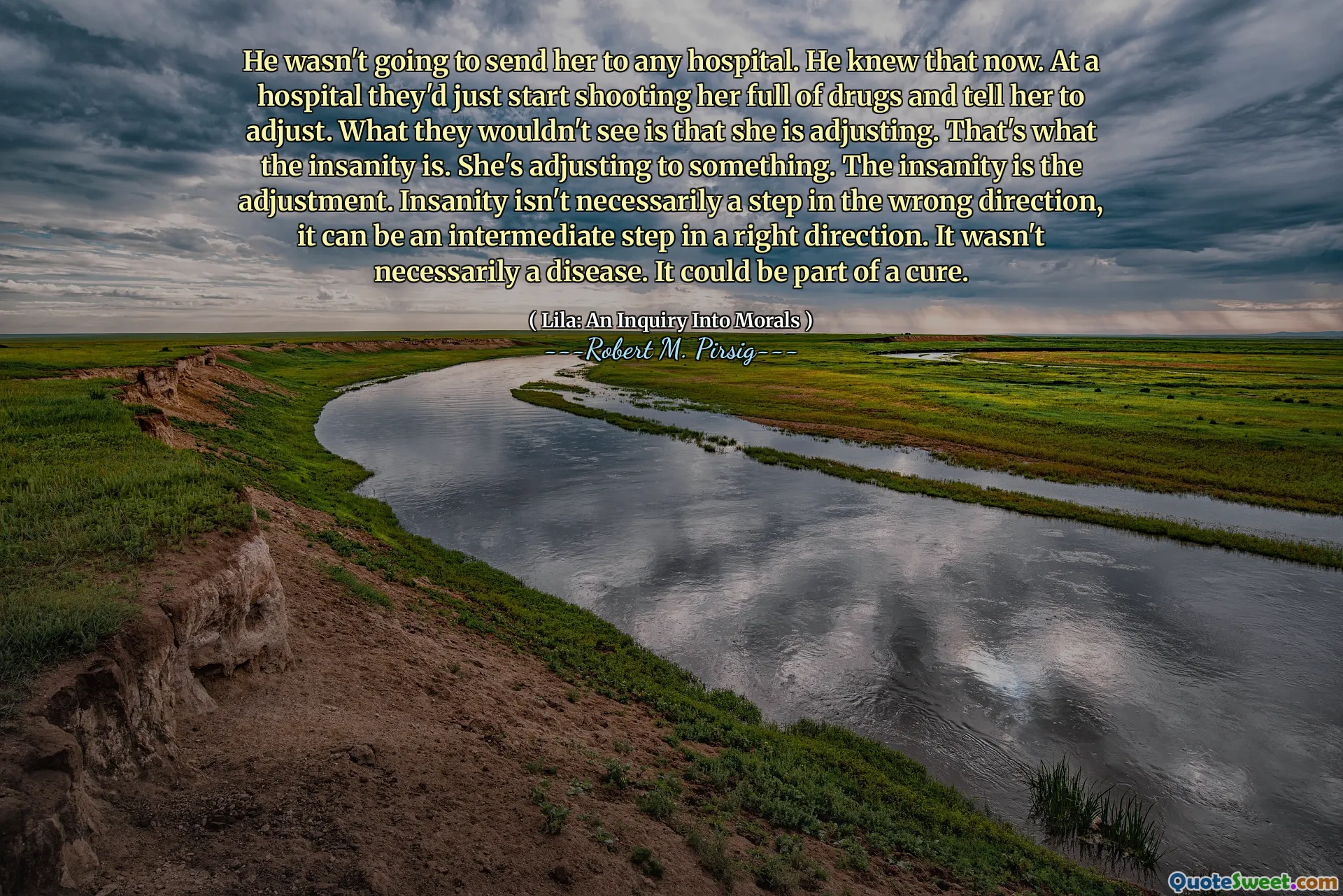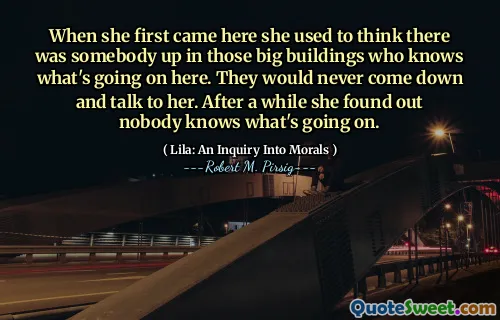
He wasn't going to send her to any hospital. He knew that now. At a hospital they'd just start shooting her full of drugs and tell her to adjust. What they wouldn't see is that she is adjusting. That's what the insanity is. She's adjusting to something. The insanity is the adjustment. Insanity isn't necessarily a step in the wrong direction, it can be an intermediate step in a right direction. It wasn't necessarily a disease. It could be part of a cure.
**This passage offers a profound commentary on the nature of mental health and the process of personal transformation. It challenges the conventional view that insanity or mental disturbance is merely a pathology to be eradicated. Instead, it suggests that what we often label as 'insanity' could be an adaptation—a necessary response to internal or external circumstances that aren’t immediately understood. The narrator's decision not to send her to a hospital reflects a deeper recognition that true healing or understanding might require patience and an acceptance of the uncomfortable phases of change. Sometimes, what appears to be a malfunction or disorder is really an intermediate step, a sign that the individual is moving through a necessary adjustment. This perspective resonates with the idea that growth often involves discomfort and disruption, and that labels like 'insanity' might be simplistic misinterpretations of complex inner processes. The quote invites us to reconsider how we judge mental states and encourages a more compassionate, nuanced understanding of change. It emphasizes that progress can be nonlinear and that what seems like a setback from an external viewpoint might be an essential part of healing or evolution. Consequently, the analogy drawn here transforms the concept of mental health from a binary normal-abnormal dichotomy into a spectrum where there’s value in every phase of adjustment, even those deemed crazy or irrational by society's standards. Ultimately, it underscores the importance of patience, empathy, and an openness to the idea that 'cures' might sometimes involve embracing chaos and discomfort as part of the process of arriving at wholeness.







